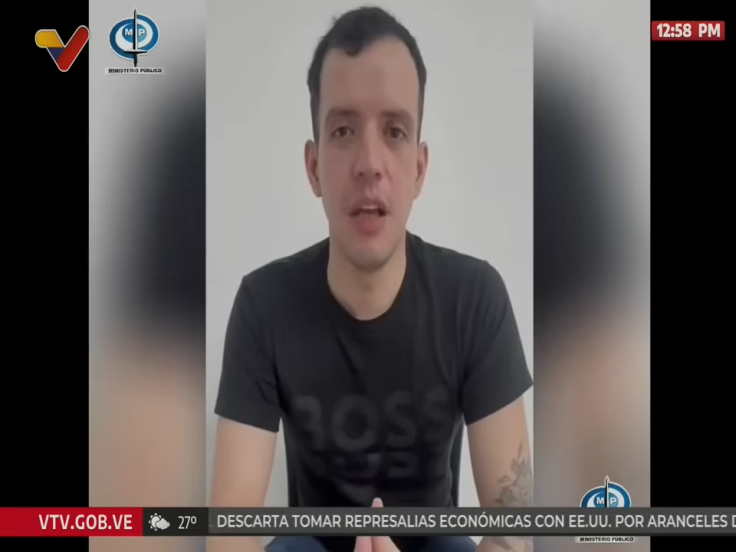
Several Venezuelan migrants repatriated as part of a recent prisoner exchange between the United States and Venezuela have accused Salvadoran authorities of torture, sexual abuse, and other mistreatment while held in El Salvador's maximum-security prison, known as CECOT.
The allegations, made public by the Attorney General for Venezuela's authoritarian regime, Tarek William Saab in a press conference, have prompted an investigation into Salvadoran President Nayib Bukele and other top officials.
The prisoner exchange took place last Friday and involved the return of 252 Venezuelans from El Salvador in exchange for 10 Americans held in Venezuela. Saab said 80 Venezuelan prosecutors interviewed the deportees, many of whom showed signs of abuse, including bruises, scars from rubber bullets, and broken teeth.
According to William Saab, detainees endured solitary confinement in poorly ventilated cells without sunlight, rotten food, and undrinkable water, while none had access to lawyers or contact with their families. Saab's press conference included a series of videos showcasing an array of testimonies by deportees, although, as CNN points out, the identities of the individuals featured or the conditions under which they were recorded have not been verified.
One of the repatriated individuals, Andry José Hernández Romero, a 32-year-old makeup artist from Táchira, Venezuela, appeared in a video released by the Venezuelan government stating:
"We went through torture, physical and psychological aggression... I was sexually abused by the Salvadoran authorities"
Hernández had been deported from the U.S. and detained in CECOT on suspicion of belonging to Venezuelan-born gang Tren de Aragua—allegations based, according to his family and friends, solely on tattoos linked to his hometown's cultural festival, as a report by CNN published in May explained.
Hernández had arrived at the U.S. border legally in August 2024 seeking asylum. Despite passing initial screenings and receiving favorable assessments, he was detained for months before being deported in March 2025 under the Alien Enemies Act, a wartime law invoked by President Donald Trump's administration. His case is now part of an ACLU-led lawsuit challenging the legality of those deportations.
Bukele responded firmly on Tuesday to the Maduro regime by dismissing accusations of torture and mistreatment as a distraction tactic and arguing that the Maduro regime no longer has bargaining chips after agreeing to the deal without objection:
"The Maduro regime was satisfied with the exchange deal; that's why they accepted it. Now they shout and express outrage, but not because they disagree with the deal—it's because they've just realized they're left without hostages from the most powerful country in the world"
El régimen de Maduro estaba satisfecho con el acuerdo de intercambio; por eso lo aceptaron.
— Nayib Bukele (@nayibbukele) July 22, 2025
Ahora gritan y se indignan, pero no porque estén en desacuerdo con el trato, sino porque acaban de darse cuenta de que se quedaron sin rehenes del país más poderoso del mundo.
© 2025 Latin Times. All rights reserved. Do not reproduce without permission.




